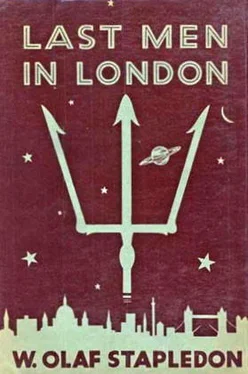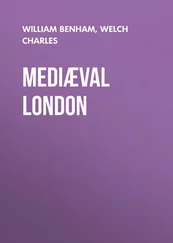Two conflicting influences dominated him at school, the impulse to assume the stereotyped’ schoolboy’ nature and live comfortably in the schoolboy world, and in opposition to this the impulse to find himself and to find reality. He strove to live according to the schoolboy ethic, partly because he genuinely admired it, partly so as to assume the protective colouring of his surroundings. But he could never succeed. The forces at work within him were too strong for him. In his early schooldays Paul never clearly understood that he was trying to live two inconsistent lives at once. He did not know that, while he was so earnestly trying to adjust himself to the school universe, he was also trying to burst that universe apart and grow an entirely new universe to suit the expanding tissues of his mind.
This growth, or rather this profound metamorphosis, was controlled by certain experiences which had an enduring effect on him. They were, so to speak, the centres of reorganization which, little by little, changed the larval Paul into the adult imago. These seminal experiences were of two kinds, though he did not clearly distinguish between them. His attention was arrested, and he was stung into excited admiration by two widespread facts: by the intricacy and relentlessness of physical happenings, and also by biological perfection, or at least functional perfection of every sort.
Paul’s sense of the austerity of the physical universe awoke early. Even in the nursery he had conceived an uncomprehending respect for the mechanism of natural events. This spontaneous movement of piety toward ‘nature’ developed not only into a strong scientific interest, but also into strangely exultant awe, for which there seemed to be no rational justification.
It was his father who first pointed out to him the crossing wave-trains of a mountain tarn, and by eloquent description made him feel that the whole physical world was in some manner a lake rippled by myriads of such crossing waves, great and small, swift and slow. This little significant experience took place during a holiday spent on the Welsh moors. They were standing on a crag overlooking the grey ‘llyn’. They counted five distinct systems of waves, some small and sharp, some broad and faint. There were also occasional brief ‘cat’s paws’ complicating the pattern. Father and son went down to the sheltered side of the lake and contemplated its more peaceful undulations. With a sense almost of sacrilege, Paul stirred the water with his stick, and sent ripple after ripple in widening circles. The father said, ‘That is what you are yourself, a stirring up of the water, so that waves spread across the world. When the stirring stops, there will be no more ripples.’ As they walked away, they discussed light and sound and the rippled sky, and the sun, great source of ripples. Thus did an imaginative amateur anticipate in a happy guess the’ wave mechanics’ which was to prove the crowning achievement of the physics of the First Men. Paul was given to understand that even his own body, whatever else it was, was certainly a turmoil of waves, inconceivably complex but no less orderly than the waves on the tarn. His apprehension of this novel information was confused but dramatic. It gave him a sense of the extreme subtlety and inevitability of existence. That even his own body should be of this nature seemed to him very strange but also very beautiful. Almost at the outset, however, he said, ‘If my body is all waves, where do I come in? Do I make the waves, or do the waves make me?’ To this the father answered, with more confidence than lucidity, ‘You are the waves. What stirs is God.’
This experience remained with Paul for ever. It became for him the paradigm of all physical sciences, and at the same time an epitome of the mystery of life. In his maturity he would often, when he came upon still water, pause to disturb its serenity. The little act would seem to him darkly impious yet also creative. He would mutter to himself, ‘God stirs the waters.’ Sometimes he would take a handful of little stones and throw them into the pond, one after the other in different directions. Then he would stand motionless, watching the intersecting circles spread and fade and die, till at last peace was wholly restored.
Paul’s first view of the moon through his father’s modest telescope was another memorable experience. He had already seen a ship disappearing below the horizon, and had been told that the earth and the moon were round. But actually to see the rotund moon, no longer as a flat white shilling, but as a distant world covered with mountains, was an experience whose fascination he never outgrew. Throughout his life he was ready to gaze for ten minutes at a time through telescope or field-glass at the bright summits and black valleys along the line between lunar night and day. This vision had a startling power over him which he himself could not rationally justify. It would flash mysteriously upon him with bewildering and even devastating effect in the midst of some schoolboy activity, in the midst of a Latin lesson, or morning prayers, or a game of cricket, or a smutty story. Under the influence of this experience he began to devour popular astronomy books. He looked with new eyes at the first page of the school atlas, which had hitherto meant nothing to him. Rapidly the school-boy universe ceased to be the whole real universe, and was reduced to a very faulty picture of a tiny comer of a universe which teemed with suns and inhabited worlds. For at this stage he imagined that every star was attended by a dozen or so populous planets.
He was perplexed to find that most adults, though many of them fully believed in some such universe, did nothing with the knowledge. That which to him was so significant was to them either tiresome or terrifying. Even his father, who had helped him to discover the new world, did not seem to appreciate it as it deserved. To the father it did indeed seem wonderful. He called it ‘sublime’. But for him it remained merely a sublime irrelevance. It compelled his attention, and in a manner his admiration also; but the tone of his voice, when he was talking of it, suggested a veiled reluctance, almost resentment. He seemed, in spite of all his scientific interest, to be happier and more at home in the world of the Iliad or of the ‘ Faerie Queene ’. The son, on the other hand, though he did his best to appreciate these dream worlds, was never moved by them. But the stars gave him an intense exhilaration, which, when he tried to justify it to his father, turned out to be, or to seem, wholly irrational.
Another overwhelming fact that gradually emerged into the child Paul’s ken, partly through the help of his father, partly through his own unaided apprehension, was what he came later to call ‘ the aliveness of all living things ’. His boon companion of early days had been a terrier, with whom he used surreptitiously to share his bread and butter, bite by bite. Of course he believed that this creature had a mind much more like his own mind than was actually the case; but also, by long experience of this animal, he learned to enter into imaginative sympathy with a mind that was not human. This canine friendship drove deep into his own mind and heart both a sense of the kinship of all living things and a sense of their differences. Though Jack could enter into a romp, he could never be induced to play trains. Nor could he be persuaded that rabbits were beings like himself, whose lives should be respected. Paul himself, of course, had to make that discovery; but even in his earliest fly-tormenting and beetle-crushing phase he was already making it. Later there came a stage when this mystery of alien lives was his chief absorption and his chief perplexity. He would watch ants toiling through the grass-jungle with food for the public store, or ‘talking’ to one another as they met on one of their highways, or fighting to the death in organized battle. Always, of course, he imputed far too much of human intelligence to these strange beings. But even when at a much later date he discovered this error, he remained firm in his sense of their fundamental community with himself. Even worms, exploring the soil with their blind noses, seemed to him infinitely more like himself than the soil they devoured. And when one of them was snapped up by a thrush, Paul suffered an agony of indecision, debating whether to save the worm or let the bird have its dinner in peace. When he saw a cat with a mouse, he rushed indignantly to the rescue; yet somehow, after the event, he fell to wondering if he had merely been meddlesome.
Читать дальше












